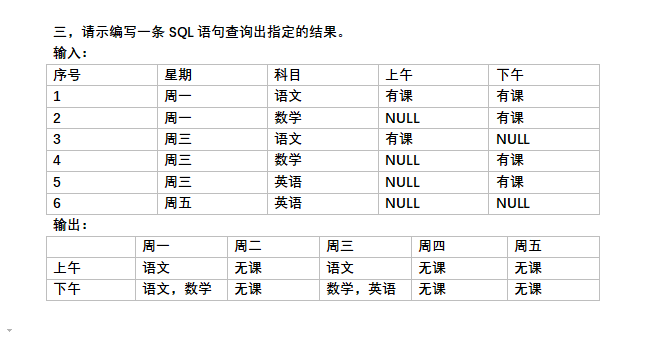Firebug for Firefox has a nice feature, called "Break on property change", where I can mark any property of any object, and it will stop JavaScript execution right before the change.
I'm trying to achieve the same in Google Chrome, and I can't find the function in Chrome debugger. How do I do this in Google Chrome?
If you don't mind messing around with the source, you could redefine the property with an accessor.
// original object
var obj = {
someProp: 10
};
// save in another property
obj._someProp = obj.someProp;
// overwrite with accessor
Object.defineProperty(obj, 'someProp', {
get: function () {
return obj._someProp;
},
set: function (value) {
debugger; // sets breakpoint
obj._someProp = value;
}
});
Edit 2016.03: Object.observe is deprecated and removed in Chrome 50
Edit 2014.05: Object.observe was added in Chrome 36
Chrome 36 ships with native Object.observe implementation that can be leveraged here:
myObj = {a: 1, b: 2};
Object.observe(myObj, function (changes){
console.log("Changes:");
console.log(changes);
debugger;
})
myObj.a = 42;
If you want it only temporarily, you should store callback in a variable and call Object.unobserve when done:
myObj = {a: 1, b: 2};
func = function() {debugger;}
Object.observe(myObj, func);
myObj.a = 42;
Object.unobserve(myObj, func);
myObj.a = 84;
Note that when using Object.observe, you'll not be notified when the assignment didn't change anything, e.g. if you've written myObj.a = 1.
To see the call stack, you need to enable "async call stack" option in Dev Tools:

Original answer (2012.07):
A console.watch sketch as suggested by @katspaugh:
var console = console || {}; // just in case
console.watch = function(oObj, sProp) {
var sPrivateProp = "$_"+sProp+"_$"; // to minimize the name clash risk
oObj[sPrivateProp] = oObj[sProp];
// overwrite with accessor
Object.defineProperty(oObj, sProp, {
get: function () {
return oObj[sPrivateProp];
},
set: function (value) {
//console.log("setting " + sProp + " to " + value);
debugger; // sets breakpoint
oObj[sPrivateProp] = value;
}
});
}
Invocation:
console.watch(obj, "someProp");
Compatibility:
- In Chrome 20, you can paste it directly in Dev Tools at runtime!
- For completeness: in Firebug 1.10 (Firefox 14), you have to inject it in your website (e.g. via Fiddler if you can't edit the source manually); sadly, functions defined from Firebug don't seem to break on
debugger (or is it a matter of configuration? please correct me then), but console.log works.
Edit:
Note that in Firefox, console.watch already exists, due to Firefox's non-standard Object.watch. Hence in Firefox, you can watch for changes natively:
>>> var obj = { foo: 42 }
>>> obj.watch('foo', function() { console.log('changed') })
>>> obj.foo = 69
changed
69
However, this will be soon (late 2017) removed.
There is a library for this: BreakOn()
If you add it to Chrome dev tools as a snippet (sources --> snippets --> right-click --> new --> paste this), you can use it anytime.
To use it, open the dev-tools and run the snippet. Then to break when myObject.myProperty is changed, call this from the dev-console:
breakOn(myObject, 'myProperty');
You could also add the library to your project's debug-build so you don't need to call breakOn again every time you refresh the page.
This can also be done by using the new Proxy object whose purpose is exactly that: intercepting the reads and writes to the object that is wrapped by the Proxy. You simply wrap the object you would like to observe into a Proxy and use the new wrapped object instead of your original one.
Example:
const originalObject = {property: 'XXX', propertyToWatch: 'YYY'};
const watchedProp = 'propertyToWatch';
const handler = {
set(target, key, value) {
if (key === watchedProp) {
debugger;
}
target[key] = value;
}
};
const wrappedObject = new Proxy(originalObject, handler);
Now use wrappedObject where you would supply originalObject instead and examine the call stack on break.
function debugProperty(obj, propertyName) {
// save in another property
obj['_' + propertyName] = obj[propertyName];
// overwrite with accessor
Object.defineProperty(obj, propertyName, {
get: function() {
return obj['_' + propertyName];
},
set: function(value) {
debugger; // sets breakpoint
obj['_' + propertyName] = value;
}
});
}
Chrome has this feature built-in in latest versions https://developers.google.com/web/updates/2015/05/view-and-change-your-dom-breakpoints.
So no more needs for custom libraries and solutions, just right click on DOM element in the inspector and choose 'Break on' -> 'attribute modifications' and that's it.



